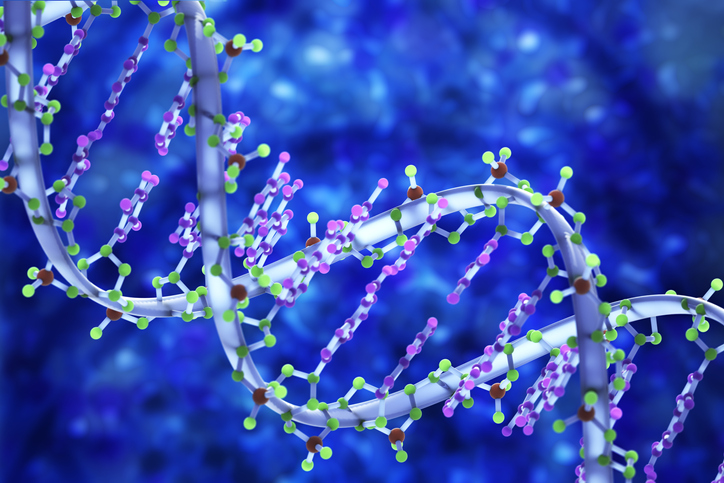
The growing chorus of concern over the way consumer health data is being sold and used has led to the emergence of new models meant to give individuals ownership of their own data. One San Diego startup is trying to create a system where health data can be exchanged for an ownership stake in the company itself.
LunaPBC was founded by former executives at genetic sequencing company Illumina with the intention create a community-owned platform for the secure sharing of health information in a way to reward the actual contributors of the data.
CEO Bob Kain said the company was born in response to the broad way that consumers were unknowingly giving companies control over their personal health data, coupled with the potential benefit from breaking down data silos to reveal new insights and discoveries.
When users contribute their data to the LunaPBC-managed LunaDNA platform, personal identifiers are stripped away and researchers or commercials partners are allowed to access the data in an aggregated manner.
Kain used the example of a researcher from the pharmaceutical industry looking for individuals of a certain age and sex who have been diagnosed with a specific disease. The researcher could then run a query among that population to find whether there was something common within their genome.
“That’s how we can move research forward by finding correlation but not compromising anybody’s privacy or ability to control their data,” said Kain. He added that members have the option to delete their data from the platform at any time.
In May, the 20-person company raised a $4.6 million funding round from investors including ARCH Venture Partners, Bain Capital Ventures and Illumina Ventures to boost the growth of its platform and expand into new data types like EHR information, fitness tracking and microbiome data. The company has raised a total of $7.6 million since its founding in 2017.
Initially, the platform was launched as a blockchain system to trade data in exchange for cryptocurrency, mirroring the approach taken by companies like Nebula Genomics and EncrypGen.
However, Kain said the SEC’s shifting regulation around cryptocurrency token offerings led the company toward a new direction.
In December, LunaPBC received a novel qualification by the SEC to allow the exchange of company ownership shares for member provided data in a Tier 2 Regulation A offering.
The exchange rate is commensurate to the utility and scale of the data shared, ranging from a whole genome (which trades for 300 company shares) to 20 days of fitness monitoring data (2 shares) to DNA targeted genes (10 shares).
Currently the estimated fair market value for a whole genome is only $21, but the idea is that more members contributing data will boost the value of the platform and company through a network effect.
A full list of the data able to be exchanged on the platform can be seen in this SEC filing.
The company doesn’t perform actual genetic sequencing, instead focusing on data management, but accepts data files from companies like 23andMe, AncestryDNA, MyHeritage and FamilyTree DNA.
The shares are non transferable and can’t be bought or sold like traditional stocks. Instead the way that members financially benefit from the use of their data is through dividends that are paid out when their data is used.
Net proceeds from commercial partnerships are divided on a 50-50 basis between LunaPBC and community members who receive a reward based on their ownership stake.
“We see ourselves as basically a data hub where we can bring people together and they can move up the value chain together and enjoy in the nonlinear increase in value that is achieved by aggregating all this data,” Kain said.
“I really believe in the end what’s going to make this sticky is when people start to see us creating discoveries that are helping their friends and family members and maybe leaving a legacy for future generations.”
Pharmaceutical companies represent a major potential partner for LunaPBC, who can help accelerate the drug development process by helping streamline clinical trial recruitment, clinical trial engagement and the collection of real-world evidence.
“Giving a pharma company back six months to a year of life on a blockbuster drug could mean a billion dollars more revenue before a generic comes out,” Kain said.
“What they tell us is that ‘we know we need larger pools of data and we’re looking to partner with other pharma companies in order to increase our data size, but we also need a relationship with the individual and we don’t know how to do that.’”
The company also seeks to work with nonprofits and academic institutions on accelerating research.
Some of the company’s initial collaborations have been with rare disease patient groups. Earlier this year, LunaPBC signed a deal with the Genetic Alliance to incorporate the nonprofit’s health data portal system onto the LunaDNA platform.
Genetic Alliance’s PEER registry has more than 50,000 individuals across more than 50 different conditions or diseases.
Picture: Altayb, Getty Images














